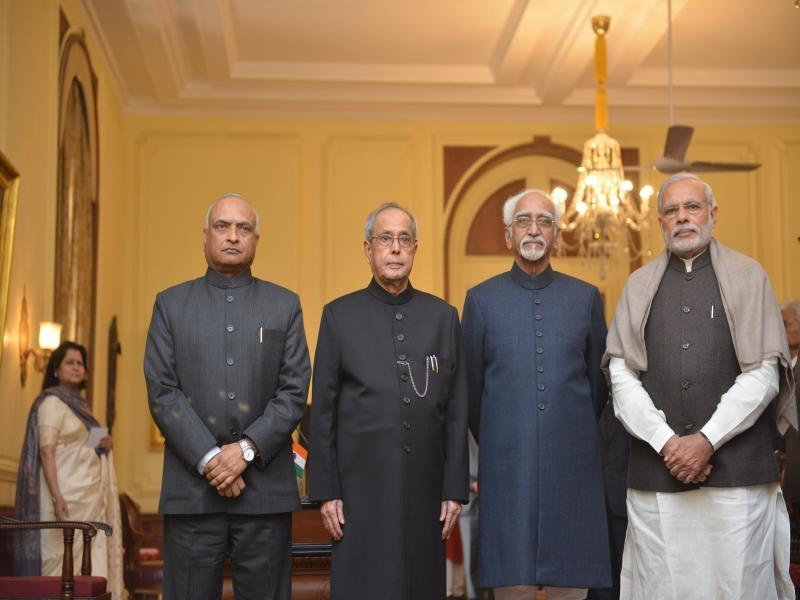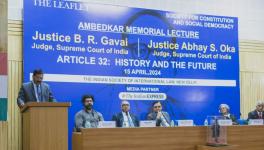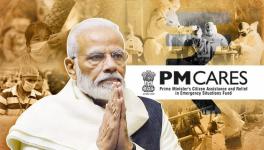Chief Information Commissioner’s Post to be Vacant Next Month, Successor Unknown

Chief Information Commissioner RK Mathur (far left) at his oath ceremony in 2016. | Image Credit: Central Information Commission website.
Chief Information Commissioner (Chief IC), Radha Krishna Mathur, of the Central Information Commission (CIC) will retire by the end of November this year. However, it is not clear who will fill this post, as the government is being strangely tight-lipped about the process. This is a break from the manner in which the vacancies in the CIC used to be handled. In the past, the names of applicants, including those shortlisted, used to be available to the public. The government, this time, appears to have decided against public transparency in the selection process. At the same time, since 2016, there have been no appointments made despite increasing vacancies.
Pursuant to a Supreme Court of India order on July 27 this year, the government had filed an affidavit on August 27. The affidavit stated that they had published an advertisement for filling up the vacant posts in the CIC on July 27, 2018, and the last date for filing applications would be August 31, 2018. However, though the Court had sought the details of the applicants as well as shortlisted applicants, the government declined to submit the names stating that, “no such practice is followed in any other equivalent high level appointments of government”.
Apart from the present stoic silence on the process, what should also be mentioned is that since 2014, there have been no appointments made to the CIC until the Courts prodded the government. While the previous United Progressive Alliance (UPA) government was in power, on February 28, 2014, an advertisement was published inviting applications for vacant posts in the CIC. On April 21, the same year, the search committee met, and shortlisted a total of six names divided into two panels for two vacant posts. However, due to the elections, no further action was taken. On May 22, 2014, Rajeev Mathur was elevated from the CIC to become the Chief IC. This led to one additional post becoming vacant.
Also Read | Carrot and Stick Amendments to the RTI Act
Two months after the Bharatiya Janata Party (BJP) government took over, a fresh advertisement was published for filling up the vacancies on July 16, 2014. This led to a total of 553 applications. However, Rajeev Mathur retired the next month, which led to yet another vacancy, meaning that the CIC was functioning at 60 per cent of its sanctioned strength. On October 24, the same year, an advertisement for the post of Chief IC was published on the Department of Personnel and Training website, for which 203 applications were received.
The search committee met twice in 2015, in January and February, implying that one year had passed since the initial vacancies arose yet were never filled. On April 8, 2015, a public interest litigation (PIL) filed by RK Jain, retired Commodore Lokesh Batra and Subhash Agarwal was admitted by the Delhi High Court regarding the vacancies in the CIC. The Delhi High Court observed that the “non-appointment of the Chief Information Commissioner has virtually frustrated the very purpose of the Right to Information Act, 2005, we are of the view that it is necessary for this court to monitor the steps that are being taken for filling up the vacancies in question so as to ensure that all the vacancies are filled up within a timeframe”.
After ten months of remaining headless, Vijai Sharma, the senior-most IC was appointed as the Chief IC on June 10, 2015, and Sudhir Bhargava was appointed as an IC. However, despite two new appointments, there were still three vacant posts in the IC. The Delhi High Court finally delivered its Judgement in the PIL on November 6, 2015. The Court issued a time-frame to fill up the vacancies.
Also Read | Why India Needs More In-House International Legal Scholars
On December 1, 2015, Chief IC Vijai Sharma retired. On December 16, the Supreme Court admitted the government’s Special Leave Petition (SLP) against the Delhi High Court’s decision. The current Chief IC, RK Mathur was appointed on January 2, 2016. On January 8, the Supreme Court directed the government to fill up the vacancies within six weeks. Finally on February 25, 2016, DP Sinha, Bimal Julka and Amitava Bhattacharya were appointed as ICs. Thus, the CIC was at its full sanctioned strength.
However, no appointments have been made since then despite vacancies arising. On September 2, 2016, an advertisement was published for filling up vacancies due on December 31, 2016 and February 15, 2017. As of January 15, 2018 no appointments had been made and the vacancies had crept back up to 4 vacant posts. On April 26, 2018, Anjali Bhardwaj, retired Commodore Batra and Amrita Johri filed a PIL in the Supreme Court, highlighting these vacancies.
What appears to be a disturbing trend is that the government tends to be sluggish in filling up vacant posts in the CIC despite a heavy backlog of pending appeals and complaints. The other trend is that of late, every round of appointments have required prodding from the Courts. Thus, what should be a matter of ordinary procedure has become one worthy of petitions in the Courts.
Get the latest reports & analysis with people's perspective on Protests, movements & deep analytical videos, discussions of the current affairs in your Telegram app. Subscribe to NewsClick's Telegram channel & get Real-Time updates on stories, as they get published on our website.
























